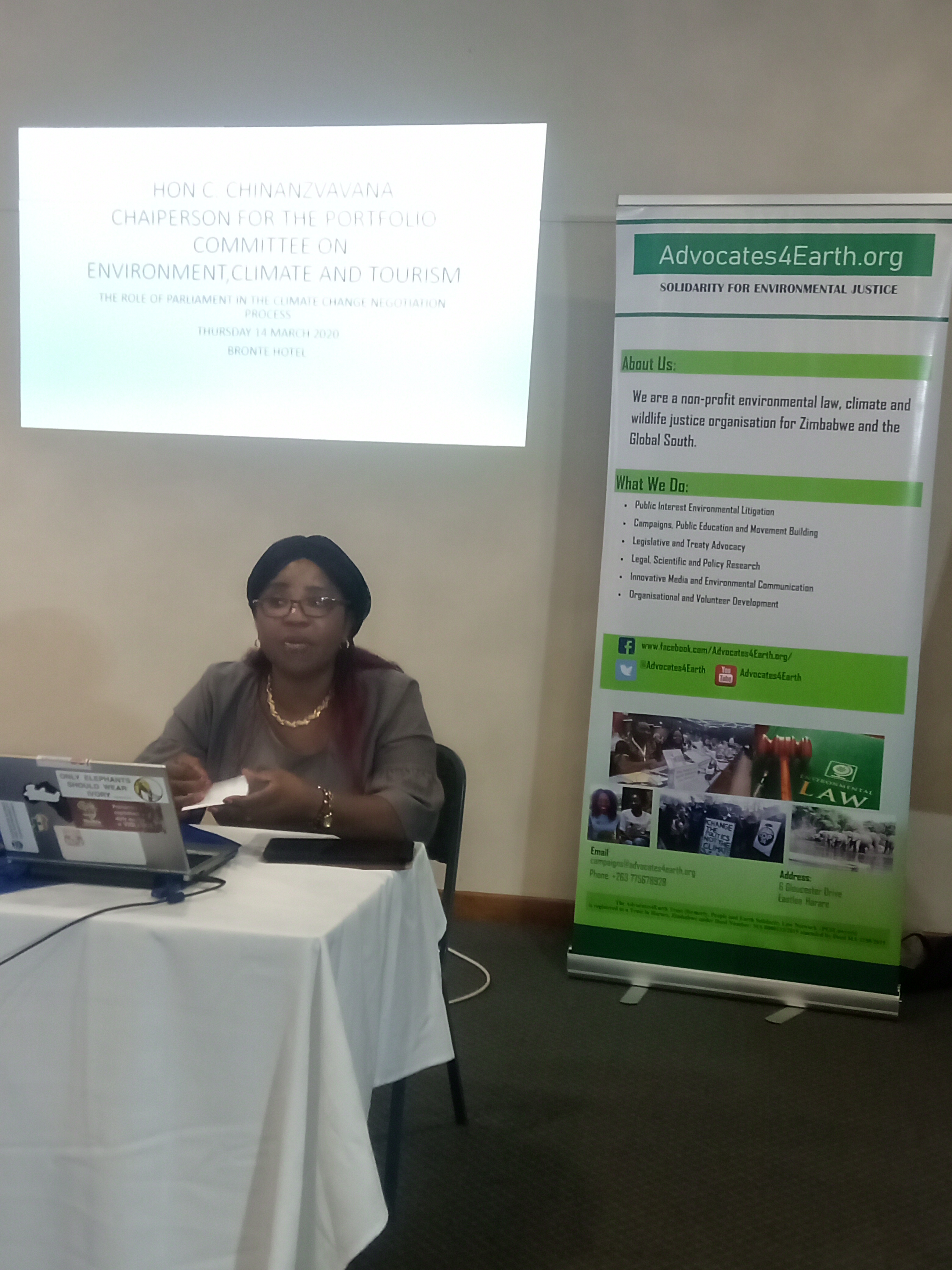Climate change is disproportionately impacting developing countries in the Global South as witnessed by incessant droughts, flooding, heat-waves, sea-level rise, water shortages, famine and disease.
This emerged at the Advocates4Earth half-day Meeting on the theme Climate Change Negotiations at Cop25: Implications and Challenges for Zimbabwe held at today at the Bronte Hotel in Harare.
Anna Brazier, a climate change consultant, said most climate refugees are and will be from the Global South, fleeing areas that may soon become uninhabitable if developed nations do not radically restructure their societies and economies to cut global greenhouse gas emissions and assist developing countries to adapt to climate change.
Brazier said the most prolific greenhouse gas is carbon dioxide which is released into the atmosphere through poor solid waste management, land-clearance, burning of wood and fossil fuels (coal, oil and natural gas) and through some industrial processes especially cement manufacture.
“Other greenhouse gases are also important – although they are less abundant their contribution to the greenhouse effect is actually stronger than carbon dioxide..Thus they have come to be known as High Global Warming Potential (HGP) gases,” she said.
Methane is emitted during the production and transport of coal, natural gas, and oil, agricultural activities especially livestock production and by the decay of solid waste. Nitrous oxide is emitted through agricultural and industrial activities and fluorinated gases (the most potent greenhouse gases) are emitted through a number of industrial process but mainly involved with refrigeration, air conditioners etc.
Brazier noted that developed countries have imposed a globalised, neoliberal, growth-obsessed economy where environmental destruction and social inequalities have been seen as externalities irrelevant to the march of progress.
“Due to intensifying climate change, with projected average rainfall declines of between 5 and 18% and temperature increases of 4°C by the end of the century, Zimbabwe will have to make some difficult choices about the future. There will have to be a shift away from the agriculture focused economy and much more emphasis on supporting the sustainable production of nutritious food.”
Chairperson of the Parliamentary Portfolio Committee on Environment, Climate and Tourism, Concillia Chinanzvavana said Parliament has a role to amend the constitution and make climate change laws.
“Parliament is currently seized with Climate Change Bill which the Environment Committee is eagerly waiting for. The bill guides subsequent action on climate change. It drives the country’s transition to net zero emission and enables the country’s maximisation on climate action. The Committee was engaged from the formulation to the validation stage of the National Climate Change Response Strategy and the National Climate Policy,” Hon Chinanzvavana said.
Hon Chinanzvavana said legislators are effective if they are sensitised and capacitated adequately on Climate Change policy and legislative frameworks.
“Legislators are competent when they are supported with personal experiences and knowledge on Climate Change matters. They are versatile and convincing when they are armed with facts and scientific researches on Climate Change issues,” she added.
